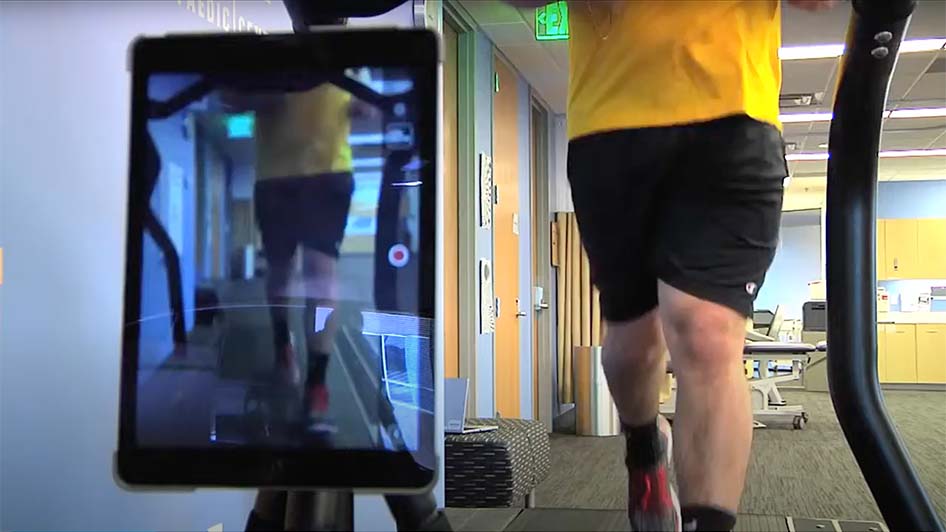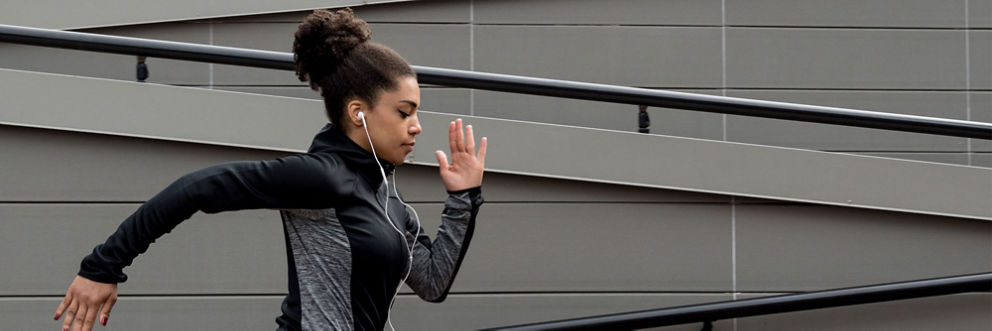Running Program
Expert care to keep runners moving
Whether you jog around the neighborhood or compete in marathons, the Running Program at TRIA is designed to help you manage current injuries and prevent future ones.
Our team is passionate about running and we know the unique challenges runners face. We have an in-depth understanding of running biomechanics and how the movement can put stress on certain areas of the body, increasing the risk for injury. We use the latest video analysis technology to diagnose a wide range of injuries, as well as provide a detailed gait assessment to identify opportunities to improve your performance.
We know how intimidating an injury can be, and we’re dedicated to helping you recover quickly while continuing to do what you love. We’ll work closely with you to evaluate your needs and create a personalized treatment plan to help you achieve your goals.
"I'm running 4-5 miles a day now with ease. ... I couldn't be more happy and impressed by the way I was treated there. The doctor who helped me is one of a kind and I'll always be grateful for how he has helped me. Thanks!"
Common running injuries
Up to 80% of runners develop pain at some point, which can interrupt their training as well as the simple enjoyment of running. The pain can be a result of multiple contributing factors, including age, stress, flexibility, and muscle and joint strength.
Common injuries runners may experience include:
- Runner’s knee (also called
patellofemoral pain or chondromalacia patella) - Shin splints
- Hamstring injuries
- Stress fractures
- Sprained ankles
- Pulled muscles
- Plantar fasciitis
- IT band syndrome
- Achilles tendinopathy (tendonitis)
- Gluteal tendinopathy
- Back pain
- Arthritis
- Meniscal changes
How the Running Program works
Our team of running specialists takes an evidence-based approach to helping runners successfully return to training and racing. We look at the entire body’s structure, strength and flexibility, and analyze how those factors may affect your ability to run, as well as your risk for injury.
We use a variety of tools, including high-speed camera video gait analysis and isokinetic strength assessments, to collect information that will help guide your rehabilitation plan and measure your progress.
We value a collaborative approach, working together with doctors, physical therapists and athletic trainers to deliver the care you need. After your initial assessment, you can expect detailed feedback and a tailored plan that will help you heal after an injury and get back on the starting line.
Our team meets regularly to discuss current research, ensuring our approach is consistent with the latest in rehabilitation science. Through partnerships with other physical therapists across the country, TRIA actively participates in running research to further the practice and provide the highest level of care for our patients.
Video analysis evaluation
There is growing evidence that running technique may play a role in the development – and treatment – of injuries. Our physical therapists are trained to use the latest video analysis software to film and analyze your running in slow motion. By doing this, we can detect subtle problems in running mechanics and help you modify your form in real time to decrease pain and improve your performance.
Specialized treatment for runners
Our team uses several different options to help runners heal and build strength to ensure a safe return to running.
Physical therapy
Our physical therapy treatments are focused on targeted strengthening and manual therapy (including dry needling) to help you return to your typical running mileage and prevent future injuries.
Education and prevention
A big part of what we do is education – helping you learn about the biomechanics of running, how your unique gait is helping or hindering you, and what you can do to build on your strengths and avoid injuries. We’ll also explain the ways footwear and
What to expect
At the beginning of your first appointment, we’ll talk with you about current injuries, past injuries and your goals for running and training. Then, we’ll do a physical examination to identify any areas of your body that may benefit from strengthening, stretching or coordination exercises.
We typically perform a video running gait analysis, which is video software that records you running and analyzes your form. Our team is trained to interpret the results and identify techniques that can help you run with less pain.
After your initial evaluation, we’ll provide you with a personalized treatment plan that addresses your current needs and helps set you up to reach your long-term goals. We’ll work together to plan out your physical therapy appointments, basing the frequency of visits on your unique needs. We’re also available to talk with you through MyChart or by phone if any questions arise between appointments.

